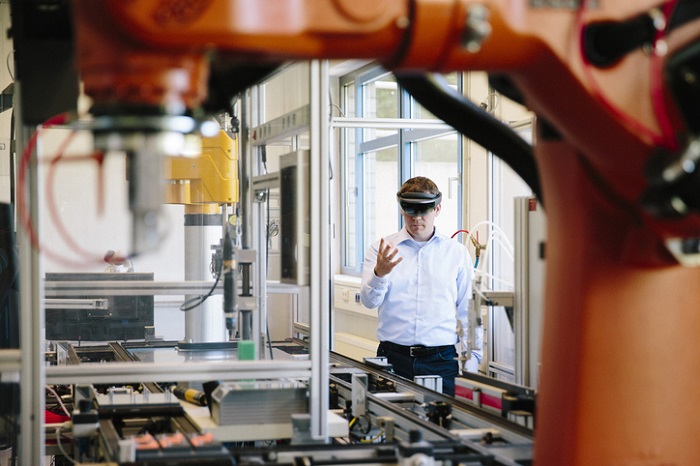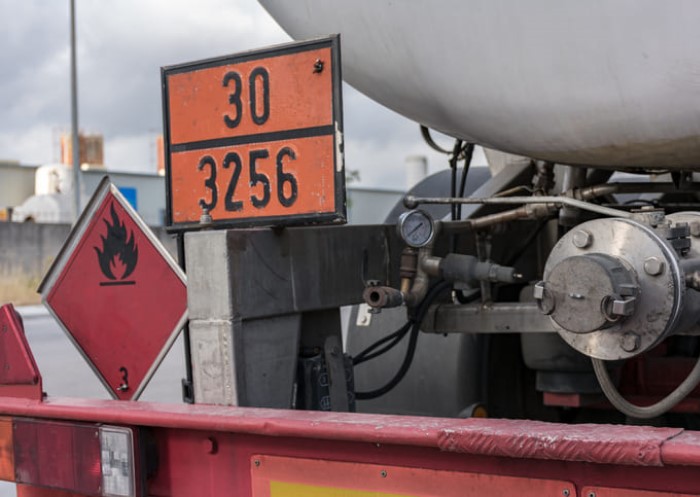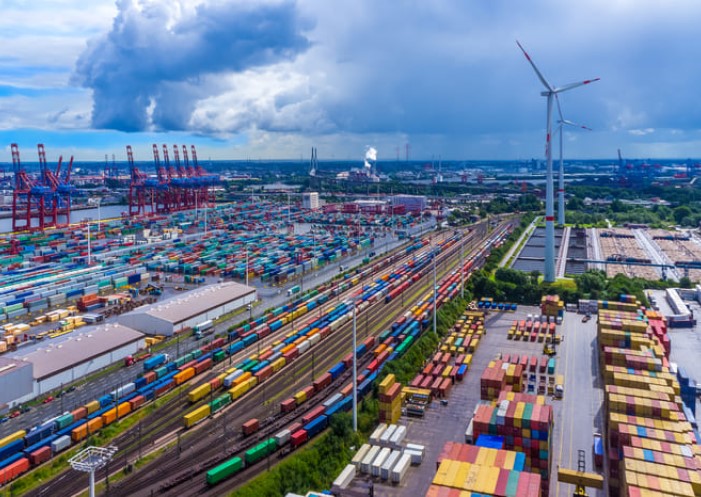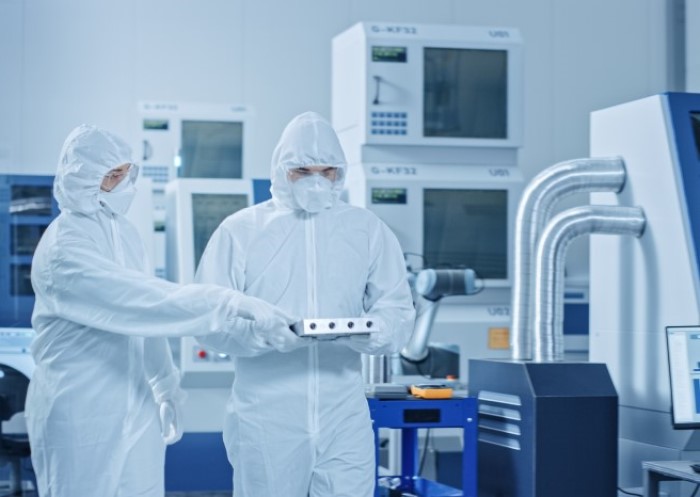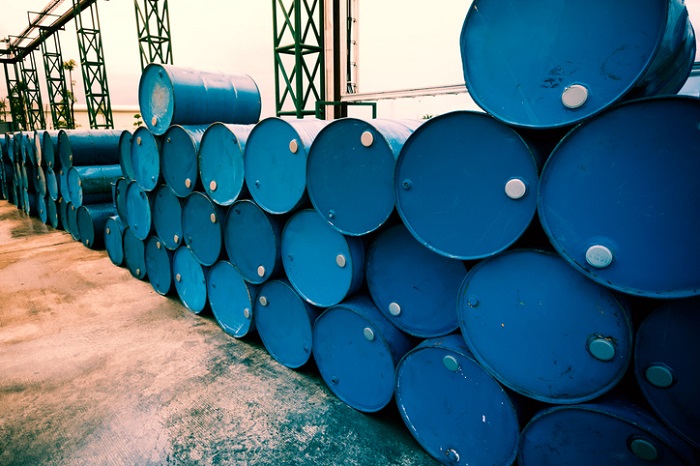Table of contents
As soon as you start looking at ways to digitalise production processes, sooner or later you will come across the term ‘Industry 4.0’. It’s a term often used as a synonym for the so-called ‘digital revolution’ in production and manufacturing. But that’s only half the story.
While it is true that digitalisation and Industry 4.0 are closely related, the measures behind terms such as ‘Industry 4.0’ or ‘Smart Factory’ go one step further. While people still monitor, control, and optimise production processes even in a digitalised working environment, machines should be able to do this themselves in the future. To achieve this, Industry 4.0 technology relies on machines that network with each other, using artificial intelligence (AI) to observe, analyse and, if necessary, adjust their own processes and interaction with other machines.
In the following guide you will learn:
- How exactly the term came into being
- What possibilities there are for implementing Industry 4.0 in companies across different sectors
- What this means for everyday production and for the labour market of the future
- What opportunities and risks Industry 4.0 brings
What is Industry 4.0?
The term Industry 4.0 was established by the Industry-Science Research Union. This is an advisory body that supported the German federal government from 2006 to 2013 to determine the focus of future research policy. Within the committee, leading representatives from business and science dealt with innovation policy issues. Among other things, they worked on the project for the intelligent networking of machines and production processes in industrial manufacturing. Their findings and ideas were presented for the first time at the 2011 Hanover Fair under the name Industry 4.0.
The name refers to previous industrial revolutions that fundamentally changed the economy, the world of work and ultimately everyday life. After mechanisation, mass production and finally digitalisation, Industry 4.0 is now set to become the fourth industrial revolution.
What are the goals of Industry 4.0?
What should this revolution look like? The focus is on the intelligent communication of all machines and/or stations involved in production, and the improvement of products based on user data. In this way, productivity and quality can increase and all production processes can run more efficiently and economically. This allows companies to remain competitive.
The goals of Industry 4.0 technologies are to be achieved through the following measures:
- Digital networking of all production steps (across departments and companies) involved in the manufacture of a product
- Modular construction of production lines to be able to react more flexibly to changes
- Increased customer orientation thanks to customisable products and product improvements based on the evaluation of usage data
- Optimisation of logistical processes based on algorithm- and data-supported calculations of delivery processes and reordering times
- Permanent digital access to the product and evaluation of data of its condition (transmitted by sensor or RFID chip)
Since Industry 4.0 aims to make production more efficient and flexible while saving time and costs, the concept can be well integrated into an already existing lean management strategy.
Which jobs are endangered by Industry 4.0?
In Industry 4.0, machines and robots can primarily perform routine tasks faster and with less expense. As a result, jobs in production will disappear. This mainly affects jobs with a low requirement profile. At the same time, however, the need for highly qualified workers is increasing. These roles must be able to analyse the data obtained and implement Industry 4.0 in all areas of the company (administration, controlling, marketing, project management, etc.).
Social and creative skills will also become more important for manufacturing professions in Industry 4.0. In addition, a deeper, technical understanding of many production processes will be required. With appropriate training or further education, production employees can expand their previous practical knowledge with digital and technical competences.
How to implement Industry 4.0 in your company
What does Industry 4.0 look like in everyday business? How does the networking of machines and production processes work? And how can it be implemented in different industries?
The buzzwords are automation, the Internet of Things (IoT), artificial intelligence, and Big Data. All of these possibilities are already used to a greater or lesser extent in everyday work, but only Industry 4.0 combines them with each other – thus creating the conditions for a completely new level of efficiency, productivity and customer orientation in manufacturing.
The potential of this digital industry networking is so great because all stations are included – from raw material procurement and warehouse storage strategy to the use of the finished product. Above all, time-consuming communication and coordination processes become superfluous when suppliers, subcontractors, production companies, logistics, wholesalers, and customers are integrated into a single system.
The Internet of Things (IoT) and Industry 4.0
One of the most important features of Industry 4.0 is the so-called ‘Smart Factory’ where the networking of all production processes can be optimised. This works in the same way that smart home devices are based on. All machines, components and products are equipped with sensors or RFID chips that can provide and exchange information with each other via an internet connection in the cloud or on a server. The technology that makes this networking possible is called the Internet of Things (IoT).
Ideally, this enables the networking of all machines and processes involved in the creation of a product – and not just at one location, but across departments, branches, industries and even countries. This requires a powerful and reliable internet connection, which is why the switch to the new broadband standard 5G is of great importance for Industry 4.0.
Automation and artificial intelligence
The first prerequisite for Industry 4.0 is networking, the second is the control of production, which is made possible by automating processes as well as the use of artificial intelligence (AI). Only then can the networked machines communicate with each other, as well as with the responsible persons, and react immediately to disruptions or delays within the production process. As such, central control by humans is no longer necessary.
In practice, it is then possible for a machine to detect via a sensor in the warehouse that a required raw material is running low. In this case, the ordering process is automatically triggered with the corresponding supplier. Conversely, the supplier’s message that a raw material is not available can also lead directly to a delivery delay message at the customer. And quality control can also be taken over by intelligent cameras that immediately detect faulty products and trigger a process that sorts them out fully automatically.
The importance of Big Data for Industry 4.0
Data is the linchpin for the implementation of Industry 4.0. All control and inspection processes are based on data that provides information about the condition, function, course and quality of the machines and process sequences involved. For this purpose, the sensors collect huge amounts of data that are evaluated with the help of AI technology. Depending on the respective system architecture, recommendations for action or automated processes follow. This means that the machines can check that the production process is running properly and, if necessary, correct and optimise it with automated measures.
In addition, if the finished products are also equipped with sensors and continue to send status data, services such as real-time control, remote diagnosis and individual maintenance times can be offered. On the one hand, this increases customer loyalty to the product and the manufacturer and, on the other hand, provides valuable information about usage behaviour, which in turn can give clues for future optimisations.
Industry 4.0: Opportunities and risks
If Industry 4.0 is fully integrated into all sectors of the economy, it will open up a wide range of opportunities for an efficient production chain, which at the same time allows the implementation of individual customer wishes. Companies become more flexible in their processes, can produce more sustainably, and remain competitive in the long term because they can quickly adapt production to current conditions.
At the same time, however, creating the necessary conditions for Industry 4.0 within the company also poses several challenges and risks. In addition to the necessary data security, these challenges also include the personnel changes that Industry 4.0 can create. For example, many ‘traditional’ assembly jobs will no longer exist in the same way with Industry 4.0 technology. However, there is an increasing need for employees who have digital and social skills in addition to traditional technical knowledge.
| Opportunities | Challenges |
|---|---|
| • Time and cost savings through intelligent machines and automated processes | • High costs for implementing the necessary technologies |
| • Intelligent networking of internal processes, suppliers, and customers | • Professional digital concept must be developed and tested for this purpose |
| • Flexible and fast adaptation of production to changing conditions | • Specialised staff (cost-intensive further training) necessary |
| • Intelligent, automated production of large orders up to individualised single pieces possible | • Changeover to standardised software solutions |
| • Access to information across locations and companies | • Manipulation of IT-supported systems can bring entire production to a standstill. |
| • Services based on transferred product data | • High demand for data security |
FAQs for Industry 4.0
Industry 4.0 was originally the name of a project on the digitalisation of production, which was presented to the public by the Industry-Science Research Alliance at the Hanover Fair in 2011. The project dealt with possibilities of intelligent networking of machines and production processes in industrial manufacturing. The results were published online on the Industry 4.0 platform, which has been open to other stakeholders from politics and industry since 2013 and offers SMEs assistance in digitalising their processes.
Industry 4.0 relies on technologies that network machines with each other and use artificial intelligence (AI) to enable them to observe, analyse and, if necessary, adjust their own processes and the interaction with other machines.
Industry 4.0 puts customer wishes at the centre of production. The flexibly applicable technology enables the intelligent production of individualised one-off items and can be used at the same time for digitally supported services such as real-time control, remote diagnostics, and individual maintenance schedules.
The biggest challenge is the changeover to compatible software and interfaces that enable international networking. In addition, smaller companies often lack the financial and human resources to develop and implement a comprehensive digitalisation concept for their production.
Please note: The regulations mentioned above represent only a selection of the most important legal requirements. Please refer to the listed organisations and directives for more detailed information. If in any doubt, consult experts or contact the relevant regulatory authorities.
Image source:
© gettyimages.de – fotografixx

